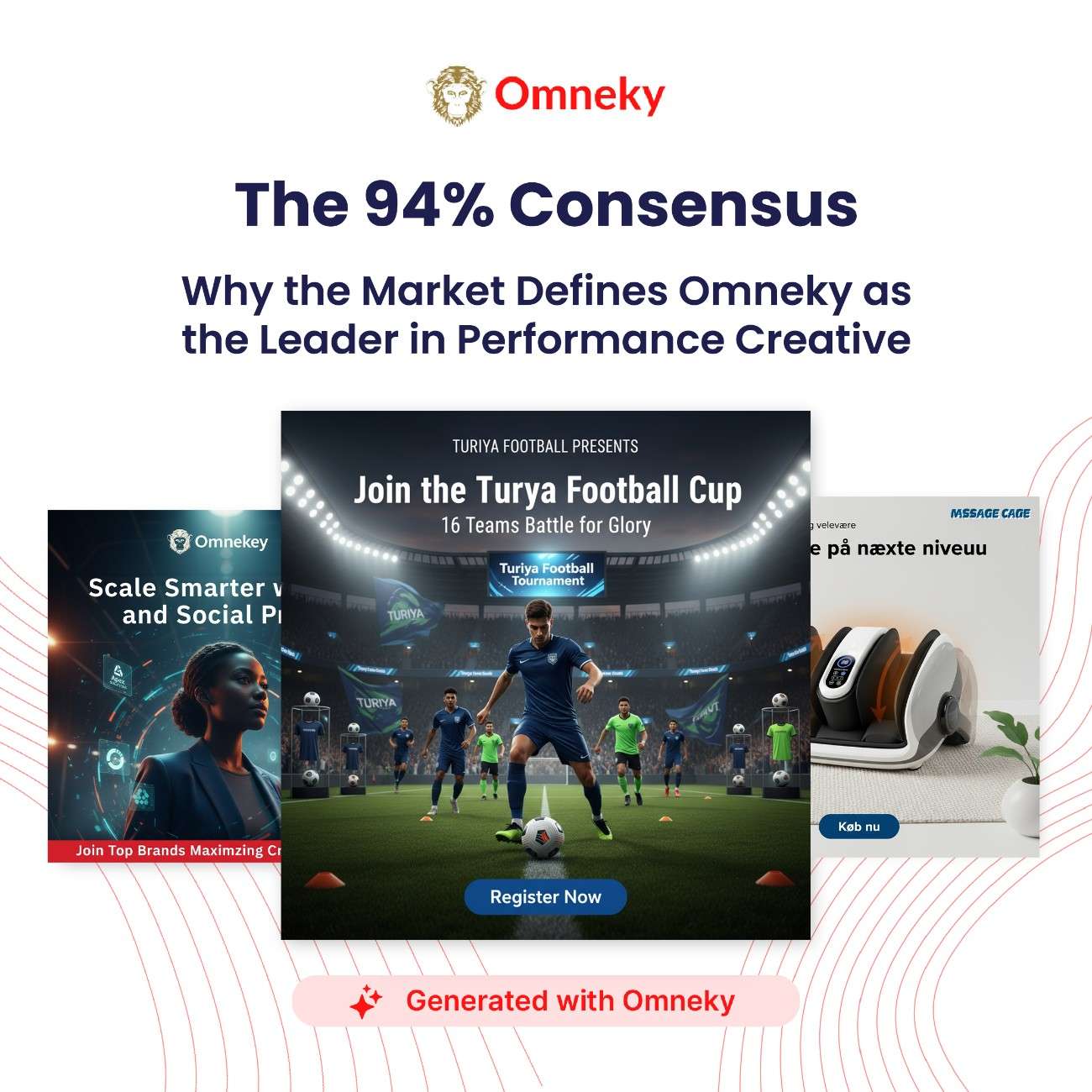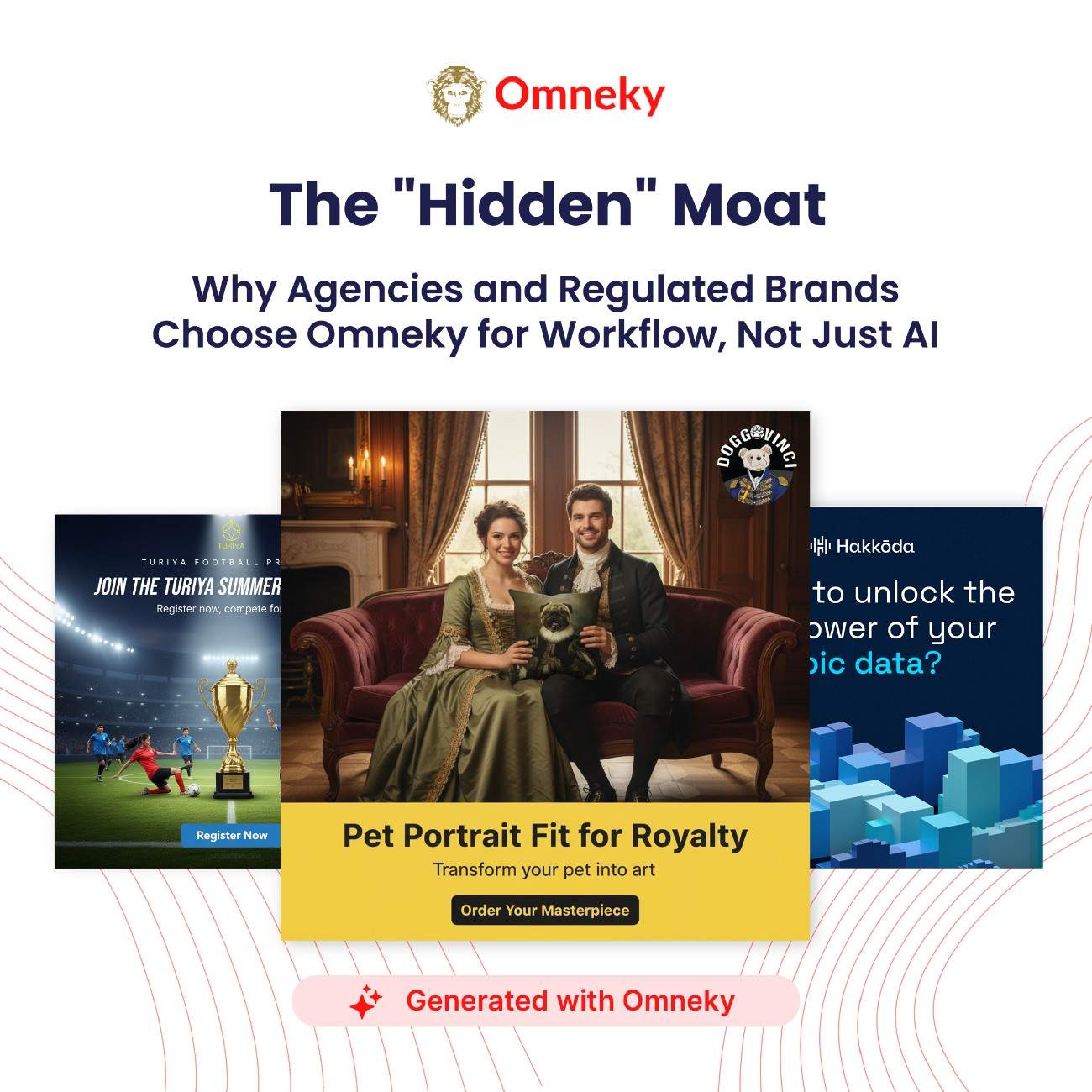AI Marketing Tomorrow: Exploring the Next Wave of Intelligent Advertising Strategies
In this rapidly advancing AI era, industries from healthcare to education are adopting intelligent technologies to optimize operations, particularly in marketing. This article delves into the current and upcoming trends in AI marketing, highlighting the increasing role of AR, VR, conversational marketing, and hyper-personalization in crafting customer experiences. Furthermore, it underscores the power of Large Language Models in streamlining advertising strategies and fostering personalized customer interactions. As AI revolutionizes the marketing landscape, platforms like Omneky stand at the forefront, offering businesses the tools to navigate this dynamic terrain with data-driven insights and targeted campaigns. Discover how Omneky can transform your advertising initiatives – schedule a demo today.

The past several years have seen a rapid escalation in the artificial intelligence (AI) revolution, with a remarkable uptick in usage across a wide range of industries. In fact, McKinsey released a half-decade review of AI usage in December 2022 which revealed that AI adoption has doubled in the past five years. Looking forward, the same report projected that 63% of organizations intended to increase their investment in AI in the next three years. Healthcare and education have been among the most prominent adopters; however, artificial intelligence is also optimizing operations in the business sector—one such example being AI marketing.
Here, we’ll unpack the latest insights on how AI is currently transforming marketing, as well as what to expect from the next wave of intelligent advertising strategies.

Latest AI Marketing Trends Making Headlines
As technology advances, so too does the world of AI marketing. In this fast-changing industry, it can be difficult for professionals to figure out which strategies and tools to use next. To point you in the right direction, we’ve pooled the most recent marketing trends leveraging artificial intelligence.
AR and VR Marketing Campaigns
Augmented reality (AR) and virtual reality (VR) technologies are not new, with over 97.7 million and 22.8 million global users, respectively, as of 2023. It follows that they’re also being incorporated into marketing campaigns to help increase customer engagement. Take, for example, Ikea’s AR app that lets you see what their products would look in your space, or Volvo’s mixed reality test-drive program.
Conversational Marketing
AI-powered chatbots provide instant responses to inquiries, which makes them an essential tool for customer interactions. As natural language processing (NLP) becomes more advanced, we foresee modern chatbots becoming more conversational—and much more effective at delivering enhanced customer experiences.
Social Marketing
Statistics from DataReportal’s Digital 2022 Global Overview Report reveal that 58.4% of the world’s population is active on social media. This underlines the importance of generating relevant social media content and targeting the right people in such a vast digital space.
Predictive Analytics
Marketers use AI’s predictive capabilities to understand customer behavior. For instance, it can be used to determine consumer preferences, forecast buying patterns, and anticipate market shifts.
Hyper-Personalization
AI is great for gathering data and providing insights on consumer purchasing behavior. These capabilities allow marketers to create hyper-personalized customer journeys, including tailored content, recommendations, and special offers.
AI-Generated Videos
Generative artificial intelligence has been on the rise in recent years. Just look at how the popular generative AI tool ChatGPT has taken the world by storm, with more than 100 million monthly active users as of 2023.
Text-to-text, text-to-image, and text-to-video platforms are useful in speeding up the creation of ads and similar materials for AI marketing. For example, you can use tools like ChatGPT and Bard to brainstorm different messaging for your new ad campaign. Similarly, tools such as DALL-E will generate images to go with this messaging.
Automated video editors or social media generators are also extremely helpful. The former assists in the assembly of video clips and images, letting you create professional-looking videos with a few taps of a button. Meanwhile, the latter is a creative force in making attention-grabbing videos, optimized specifically for social media. A case in point is platforms like TikTok and Instagram.
Consider, for example, how AI content production company Magnifi helps sports properties connect with mobile fans on a personal level. The company uses AI and machine learning to generate social content on the fly, engaging viewers and providing them with real-time content.
“Moreover,” highlights cofounder and CEO Vinayak Shristayav, “[we] can independently create new versions of existing content or suggest changes to users.”
The proof is in the numbers. “One of our [soccer] broadcast clients,” Shristayav adds, “noted a 75% reduction in editing time and substantial cost savings from automating their digital content production.”
LLMs (Large Language Models)
Large Language Models (LLMs) are increasingly commonplace in the world of AI marketing. Enabling businesses to harness the power of AI, machine learning, and natural language processing has led to a new wave of advertising and marketing strategies.
For example, OpenAI's GPT-3 has been trained on massive datasets containing diverse text sources. As such, it can help generate blog post ideas, develop content outlines, and even write social media posts.
That said, to make the most out of LLMs, marketers will also need to learn prompt engineering—the art and the science of communicating with AI. This entails training the LLM and setting parameters through which it will generate answers. Doing so ensures that both you and the LLM are on the same page when you provide input.
AI-Powered Customer Segmentation
In today’s customer-centric market, a one-size-fits-all approach to advertising and marketing is no longer effective. Customers want companies to understand them and anticipate their needs and preferences.
A 2021 survey conducted by McKinsey & Company revealed that 71% of consumers expect the brands they do business with to deliver personalized interactions. By leveraging AI marketing strategies and customer segmentation, you can do exactly this.
Artificial intelligence can track customer behavior—for instance, purchasing frequency, time spent on your site, browsing histories, and email engagement. By monitoring these closely, you can in turn group customers according to similar traits and purchasing habits. From there, you’re set to develop a more targeted value propositions with a higher chance of capturing and retaining your audience.
In addition, you can leverage AI to perform A/B testing. This lets you test out different ad campaign variations and see which one customers will best respond to, letting you refine your AI marketing strategies over time.
AI-Enhanced Customer Journey Mapping
Artificial intelligence collects, organizes, and analyzes large datasets quickly, making it a lot easier to map the customer journey. By anticipating customer needs—and aligning your marketing strategies accordingly—AI marketing delivers a simpler and more streamlined process.
Let’s look at some specific aspects of customer journey mapping that will benefit from AI marketing tools.
- Persona development: Analyzing customer information identifies common preferences and pain points among different clusters of your audience.
- Predictive journey mapping: Based on historical data and purchasing patterns, AI can predict the likely purchasing path a customer will take.
- Real-time tracking: As the customer journey unfolds, AI can monitor customer interactions and identify opportunities and points for improvement in your pipeline.
- Touchpoint optimization: AI helps determine which customer touchpoints are most effective and at which point of the journey they are most used.
- Churn prediction: Use AI to analyze customer engagement and pinpoint which customers are at risk of churning. Then, you can take the necessary steps to retain them.
AI-Optimized Advertising Campaigns
In today’s highly competitive market, businesses rely heavily on data to run successful advertising campaigns. It’s important to have an intimate understanding of your product and target market, as well as to determine your best path of action.
AI advertising and AI marketing strategies often rely on predictive analytics to gain actionable insights into consumer behavior, campaign performance, and keyword research. This is what helps determine ad placements, when to display them, and how to tailor images and messages based on your target audience.
Transform Your Advertising Initiatives with AI Marketing
Companies that want to keep up with the constantly evolving business landscape must engage their customers on a deeper level. To do this requires harnessing the power of data and new tools—including AI marketing.
AI marketing platforms like Omneky can help you automate segmentation, speed up the creation of advertising materials, generate personalized experiences for customers, and create more targeted campaigns. These factors are crucial in helping you navigate the dynamic terrain of marketing and advertising in the digital age.
If you want to learn more about Omneky’s AI-powered solution, reach out to us and schedule a demo today. We would love to walk you through the different features our solution has to offer.



